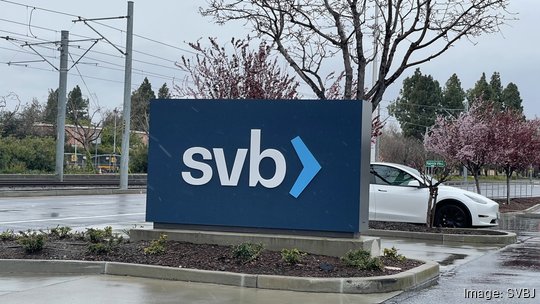
Songfinch co-founder Scott Kitun woke up Thursday morning with roughly $11 million in his Silicon Valley Bank account. Before the markets even opened that morning, he knew he had a problem and got 95% of the money out before transfers were halted completely.
He considers himself one of the lucky ones.
The bank, which worked with many growing startups and technology companies, swiftly shut down Friday when federal regulators seized control of the institution's assets less than two days after SVB officials announced it had lost nearly $2 billion. Its SVB Capital unit had invested in both venture funds and directly in startups in the tech and life-science industries and had about $9.5 billion in capital under management at the end of December spread across the country.
“A lot of us startups and founders wouldn't be here without SVB, which is what makes the situation that much more terrifying," Kitun told Chicago Inno. “The loans and rates they were able to set up for startups — every other bank would have been like 'no way.' They’ve been an incredible partner for me personally and for Technori [a media platform for entrepreneurs]. It’s really sad to see, and I’m not sure how we’re going to replace that component of the ecosystem. That’s a big gap that people aren’t thinking about."
He questioned how startups would be able to “raise debt” and do things a little bit more "loosey-goosey" without SVB.
"Is it a huge deal that they have to bank at somewhere like Chase? Not really. But the interest rates on the use of funds and the perks for the founders themselves — that goes away," Kitun said.
SVB's long reach
Chris Deutsch of Chicago-based Lofty Ventures told Chicago Inno that banking with SVB "was a little bit of a badge."
"It was a brand, an institution. Like McDonald's or Portillo's is to Chicago, SVB was that to startups," he said. "Especially if you’re outside of Silicon Valley, to have the badge of SVB as a Chicago founder, there's definitely a level of prestige around that."
Tony Coglianese, senior vice president at CBRE and co-founder of ChiTechIRL, said that one of SVB's best attributes was that it helped connect Chicago startups to the coasts.
"Without that, I'm worried that we're not going to get as many looks for some of our local startups to raise that big Series B or C long-term," he said. "If I was a founder, I would probably focus more on the bigger banks to make sure this didn't happen again, but again, it's a very unprecedented situation. I think overall long-term, there could be a lot of hesitancy to work with smaller regional banks."
Coglianese said SVB was one of the first sponsors for ChiTechIRL, and the bank was typically tech firms' "first call" when they were looking for a banking partner.
While he said the Fed's bailout alleviated a lot of fear, still he expected the bank's collapse to cause a ripple effect throughout the tech community after what was a difficult weekend for just about everybody in the tech space.
"A lot of people were working throughout the weekend to figure out what their plan was, how they were going to pay payroll and what their future looked like," Coglianese said. "I was fielding calls from landlords and clients alike."
He added that many tech companies had security deposits tied to letters of credit through SVB, which could lead them to defaulting on their lease obligations.
From Thursday morning through Sunday evening, the partners and board members at Drive Capital, which recently hired a general manager in Chicago, were exchanging constant calls and emails with founders, including ones whose payroll checks weren't clearing, said Chris Olsen, Drive co-founder and partner, to Columbus Inno, a sibling publication.
"This was a very material threat to a large chunk of our portfolio … and also Drive itself," Olsen said. "We were able to put our portfolio in a position where no company would have missed payroll at least in the first seven days. [As of Monday,] all of our companies have full access to all of their deposits."
The same goes for Gener8tor, which runs an accelerator in Chicago and was among the Wisconsin companies impacted by SVB's rapid collapse. Even after the relief of fully accessing its money on Monday, Gener8tor is in the process of switching to new business bank accounts at multiple institutions to spread out its future risk.
Drive Capital plans to advise its portfolio companies to employ a similar tactic moving forward to ensure "redundant bank infrastructure."






